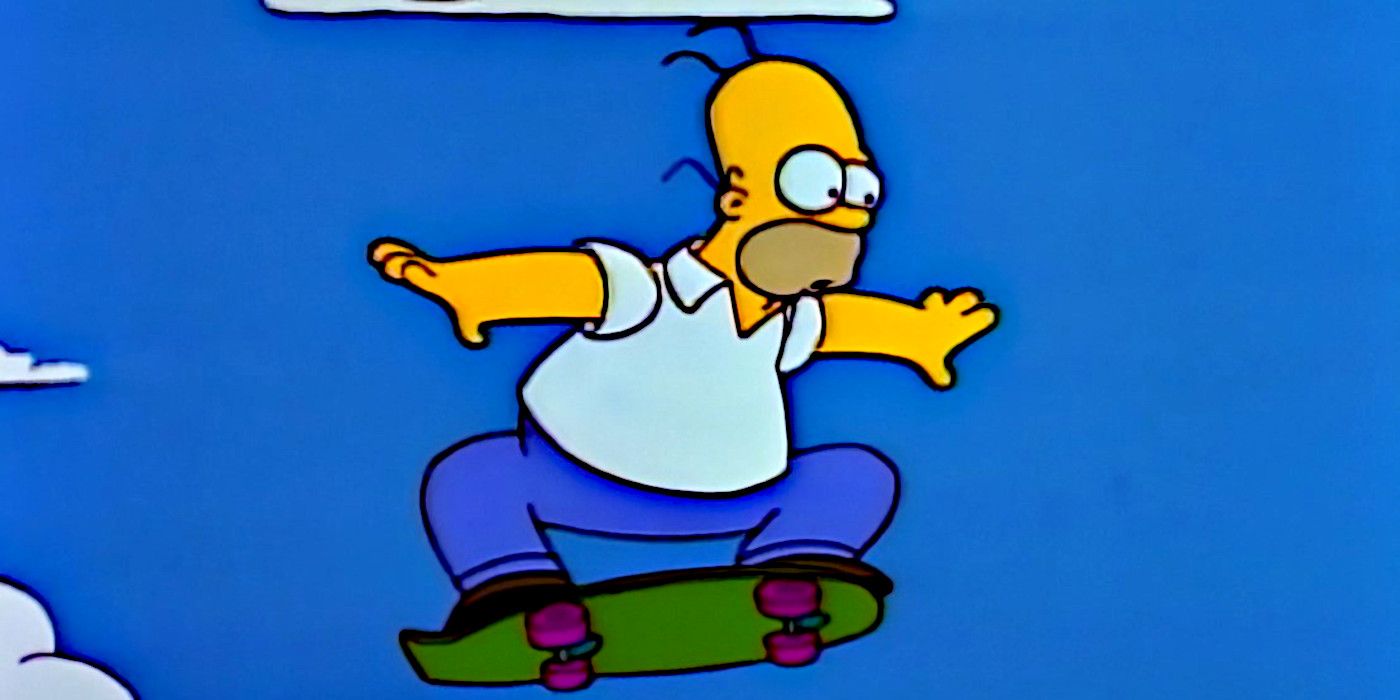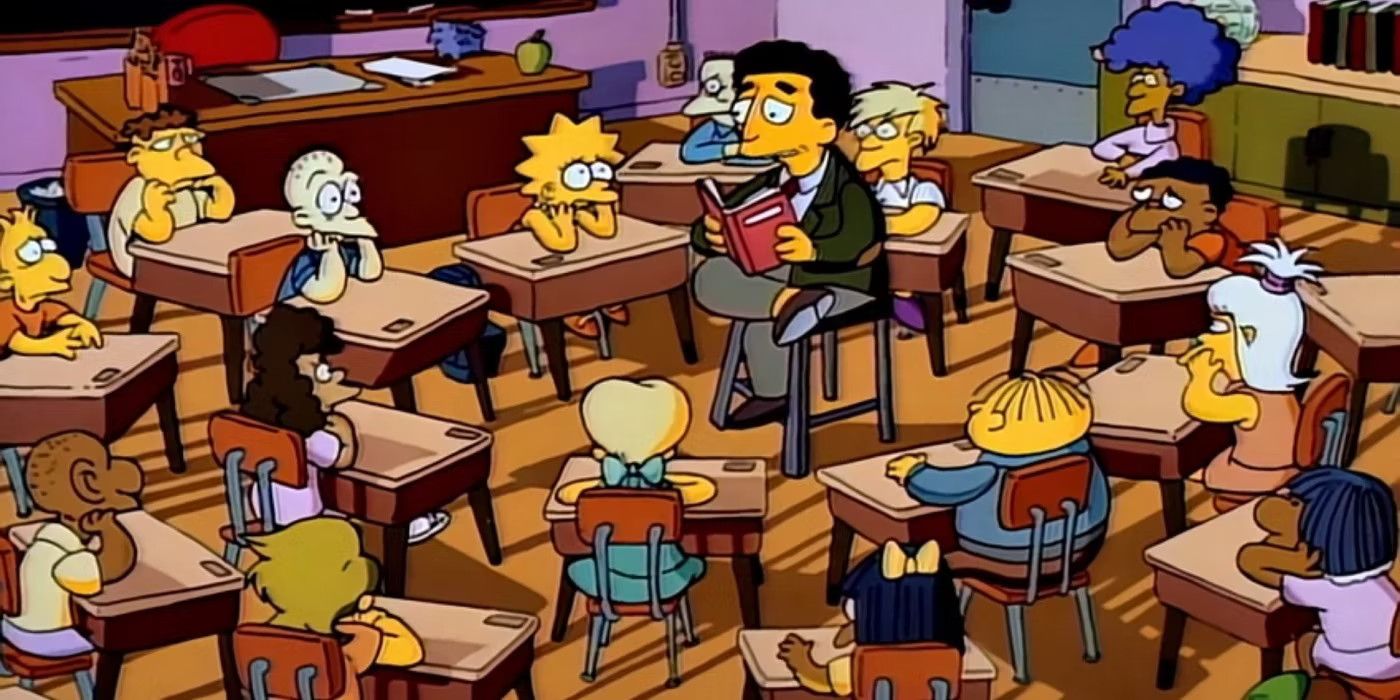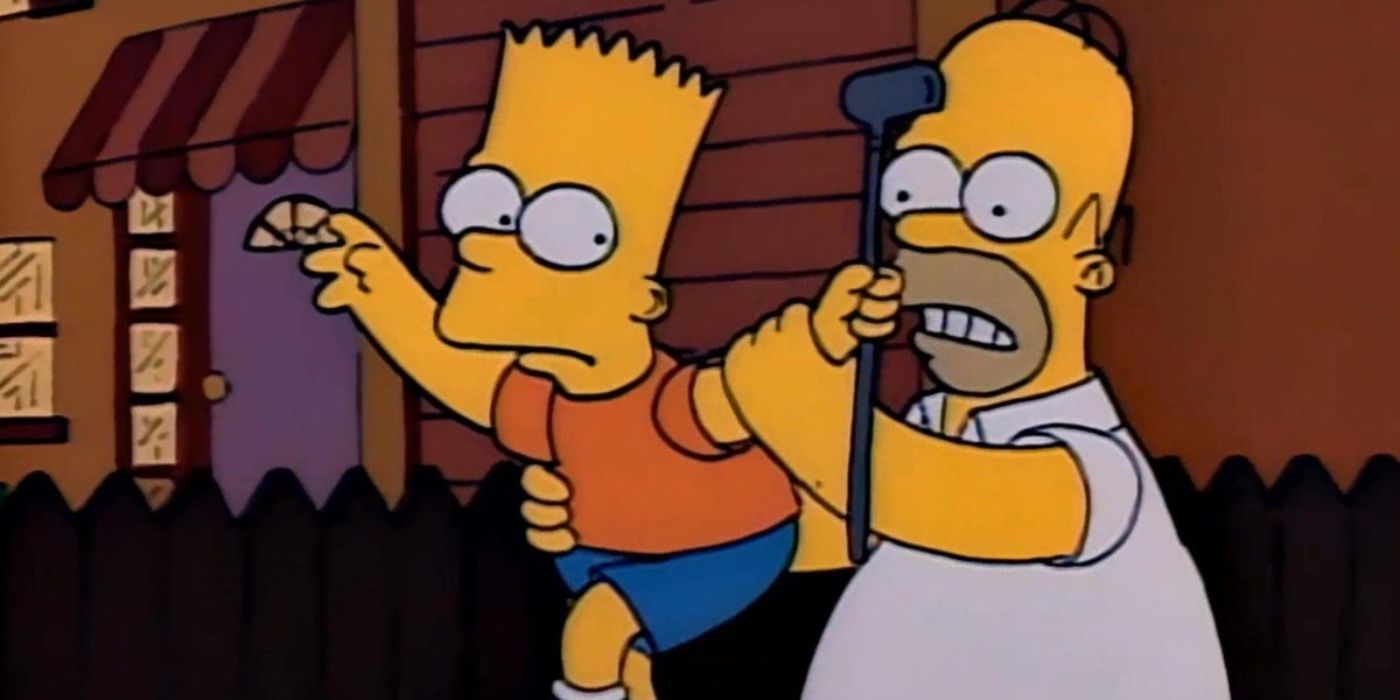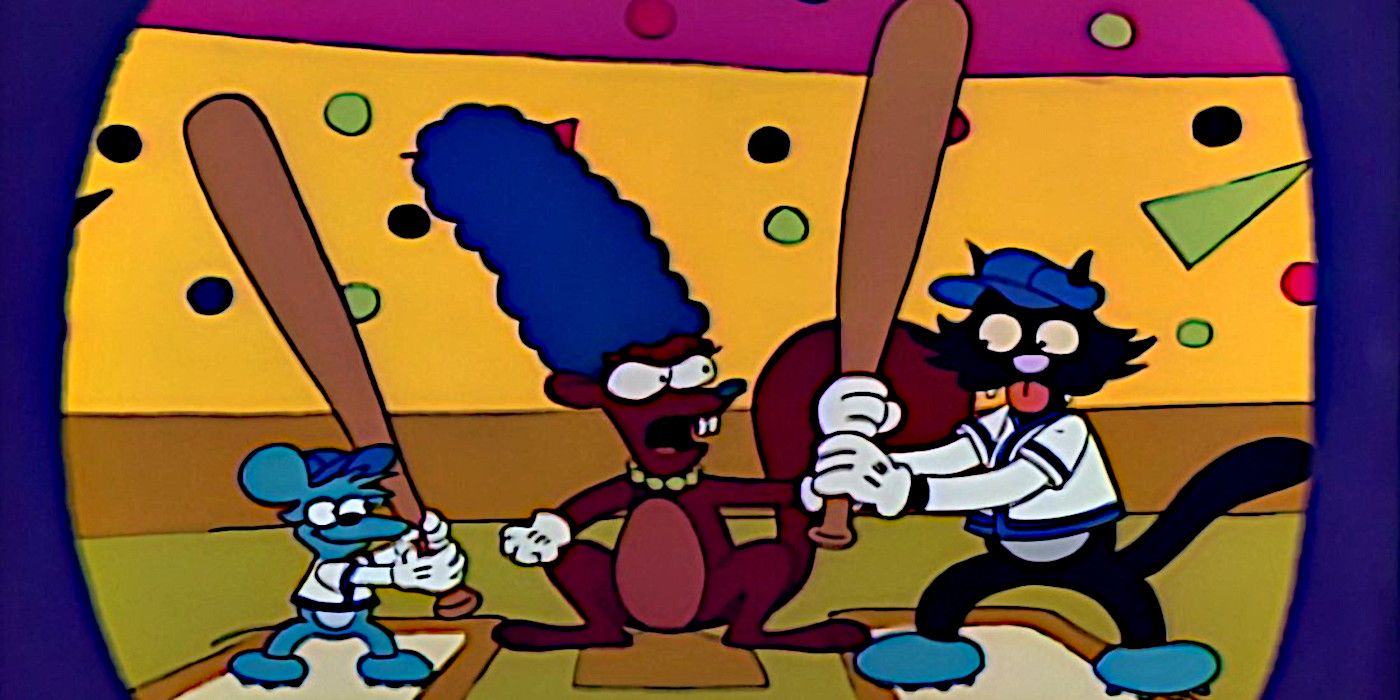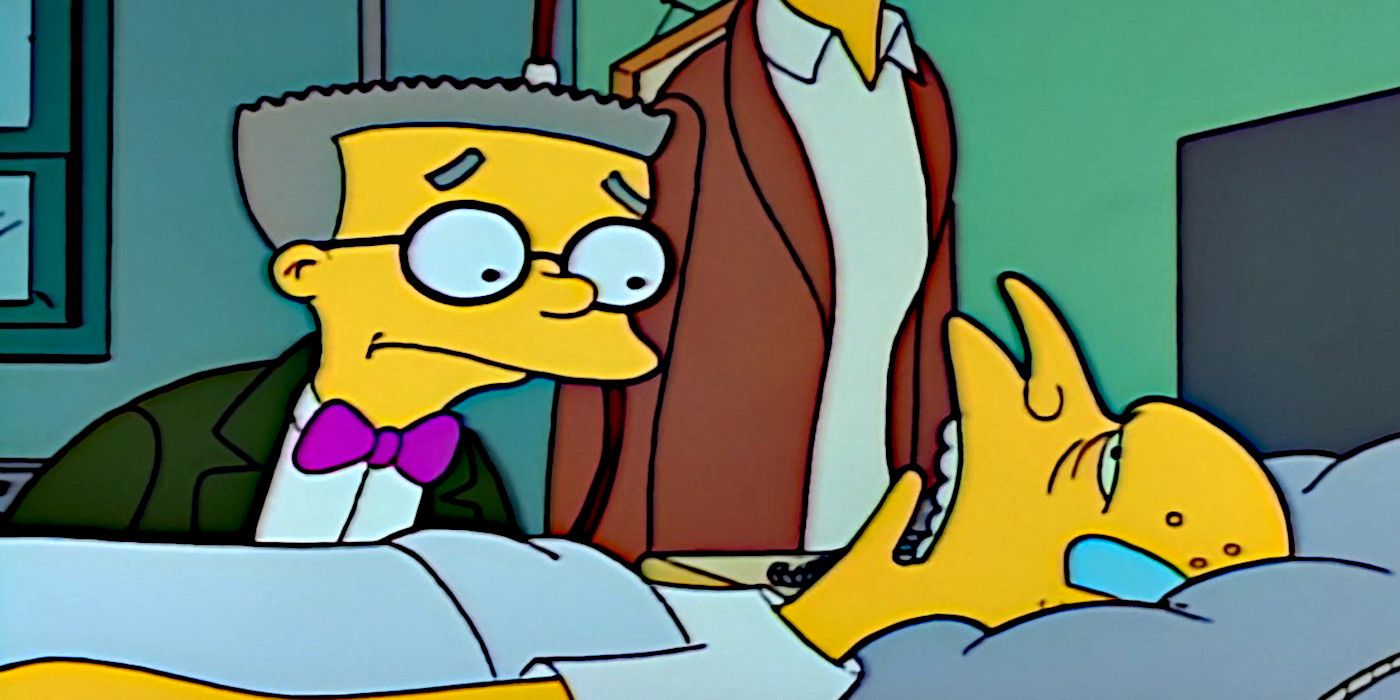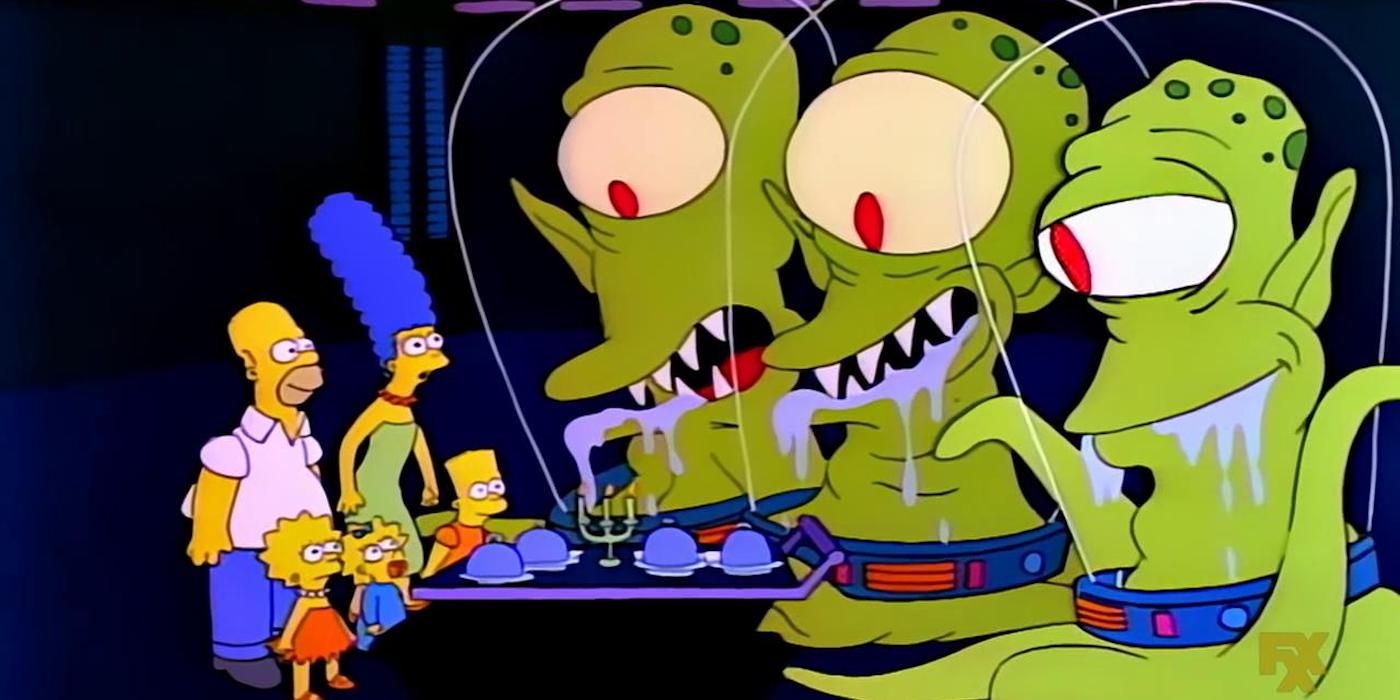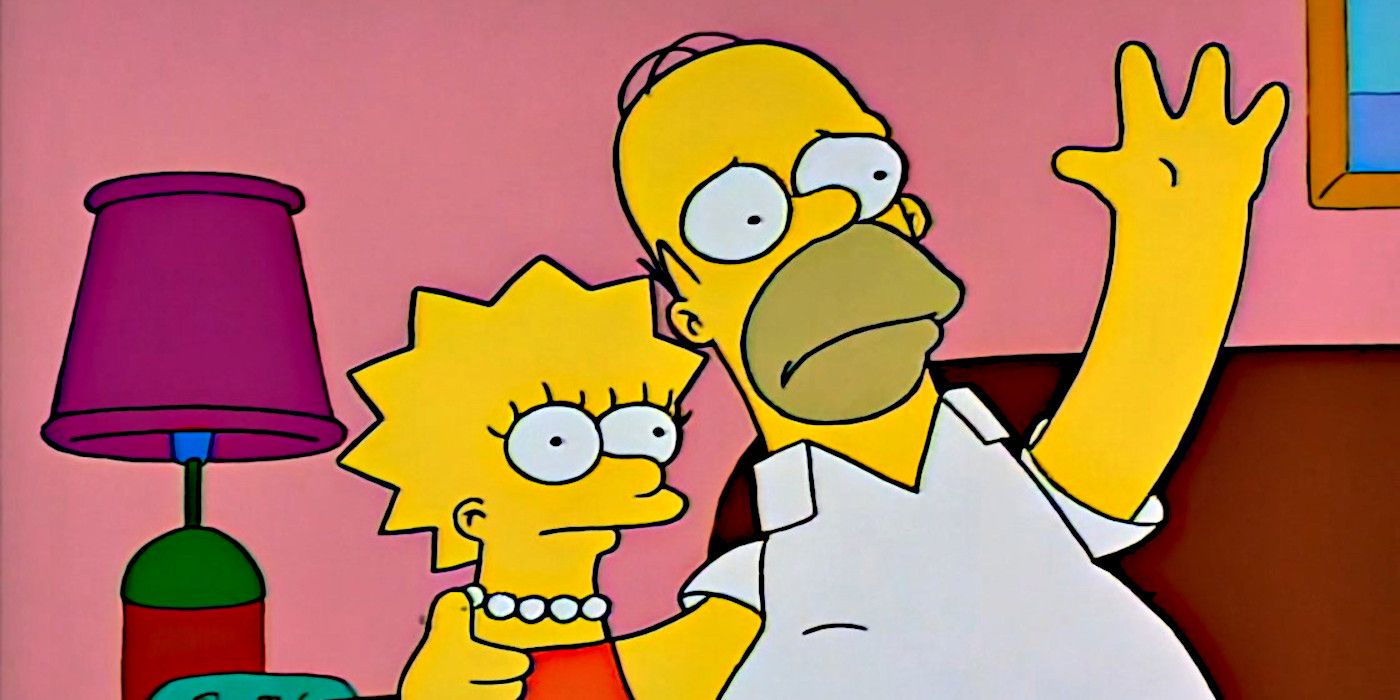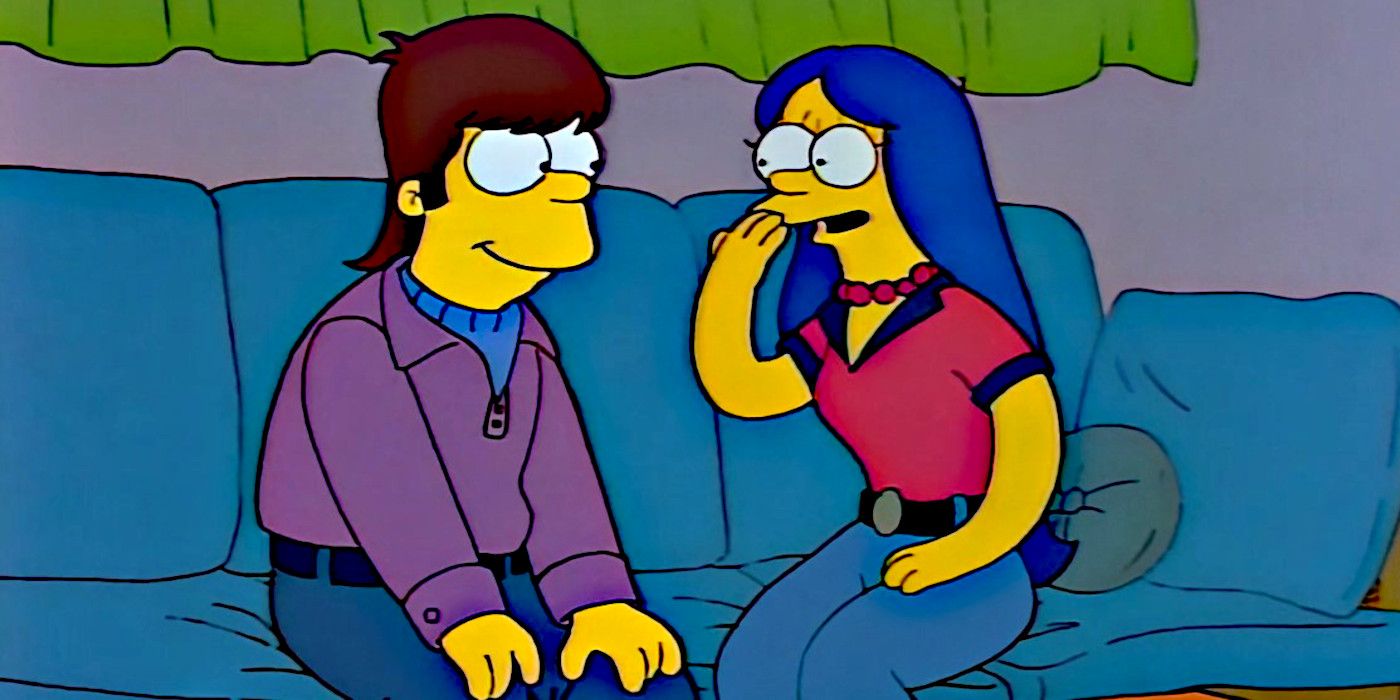In the Fall of 1990, The Simpsons showrunners Matt Groening, James L. Brooks and Sam Simon had the greatest of problems: high expectations. The first season of The Simpsons was a runaway hit, introducing a wild and aggressive satiric sensibility into an otherwise tame prime-time selection that included shows such as Full House or The Cosby Show. But now that all eyes were on the first family of Springfield, how would the creative team approach season two?
The answer was to tone down the shock value in favor of a sharper focus on the family dynamic. If season one was the collection of raw materials, season two would be the building of a machine designed for longevity. While the entire season is filled with classics, the following episodes not only defined the sophomoric run, but the show itself for decades to come.
10 “Bart Gets an “F””
Episode 1
The threat of repeating the fourth grade forces Bart (voiced by Nancy Cartwright) to employ the help of class genius Martin Prince (voiced by Russi Taylor). The two agree to a fair trade — Martin will tutor Bart, and in exchange, Bart will teach Martin how to be cool. Bart’s tutelage proves too effective when a changed Martin abandons the arrangement, leaving Bart to fend for himself. With a prayer answered, Bart makes the hard decision to study in hopes of seeing the fifth grade.
Bart was the breakout character from the first season, so he was front and center for the season opener. Bart’s notoriety, with his penchant for cursing and causing trouble, made him the hero of the playground and the villain of teacher’s lounges across America. “Bart Gets an F” helped to slowly redefine the character by placing him in an underdog story. For all his attitude and bad behavior, he’s also a regular 10-year-old boy who doesn’t want to be the oldest kid in class.
9 “Oh Brother, Where Art Thou?”
Episode 15
A health scare from Homer’s (voiced by Dan Castellaneta) dad leads to a confession that Homer has a long-lost brother. After a search that involves calling four people, Homer is able to locate his brother, Herb (voiced by Danny DeVito), and discovers he’s a wealthy car manufacturer in Detroit. Herb is overjoyed to meet his new family, opening his home to them and offering Homer a job. When Homer is tasked with designing a car for the regular man, the results are nothing short of disastrous.
The Simpsons boast a long line of guest stars, but DeVito’s turn as Homer’s brother stands as one of the more memorable ones. DeVito’s a reliable comedic voice, as seen in his performances on Taxi, andIt’s Always Sunny In Philadelphia, and he fits into the show seamlessly. The episode also expands the lore of the Simpsons clan without changing the core dynamic. In later seasons, the show can be guilty of throwing out curveballs that get swept under the rug before the credits roll, but the resolution here feels satisfying, if not a tad bittersweet.
8 “Bart the Daredevil”
Episode 8
After Bart watches stunt performer Captain Lance Murdock attempt a… mostly successful stunt, he decides to pursue the life of a professional daredevil. Starting with small stunts that end in minor scrapes, Bart ignores warnings from the surrounding adults, culminating in his attempt to jump Springfield Gorge on his skateboard. Homer thinks he’s talked his son out of the stunt, but when he finds Bart missing from his room, he rushes to save him, offering to perform the jump himself. Bart finally understands what it’s like to worry about a loved one, but Homer inadvertently “jumps” the gorge, creating a legendary Simpsons moment.
When critics of The Simpsons listed their complaints, one was Homer choking Bart and the physical abuse he threatened when his children misbehaved. Cut to a season later, and viewers see Homer risk his life to save his children. In these moments, the show begins to recalibrate the tone from broad violence to a not-so-subtle warning for kids not to try this at home by showing the consequences of doing so. (Although the gag of Homer hitting the rocks over and over is priceless) Homer is a good dad, even if he has to nearly die to prove it.
7 “Lisa’s Substitute”
Episode 19
Lisa (voiced by Yeardley Smith) is distraught about learning her teacher, Ms. Hoover, is taking a leave of absence under questionable medical circumstances until a dynamic and charming substitute, Mr. Bergstrom (voiced by Dustin Hoffman), takes over the class. Lisa finds herself smitten with the new teacher and his outside-the-box approach to teaching, while becoming increasingly irritated with Homer’s antics. Meanwhile, Bart learns the swings of politics when he runs for class president against overachiever Martin Prince. When both Lisa and Bart experience loss in each of their own ways, Homer steps up with the right words at the most necessary time.
Homer and Lisa’s relationship is a complicated one, and “Lisa’s Substitute” is one of the first to explore their differences and strengths. Viewers see how Lisa yearns for a strong male role model but also how Homer struggles to understand a daughter who is impossibly bright and operates at a level he struggles to make sense of. While Homer may not be well-read or know the nuances of great works of art, he’s happy to make monkey noises if it makes his daughter smile. The episode is filled with countless funny moments, but it’s also a story about first loves, first losses, and finding common ground with the people that matter most.
6 “Dead Putting Society”
Episode 6
Homer’s growing jealousy of neighbor Ned Flanders (voiced by Harry Shearer) and his perfect life creates a rivalry between the two men, culminating in a mini-golf tournament played by Bart and Ned’s son, Todd. Homer’s attempts at coaching Bart prove unsuccessful, so Lisa steps in to give Bart a helping hand. The stakes are low, but egos are high as Bart and Todd face off among the windmills and mechanical Abe Lincolns to settle a wager in which they have no investment. With pressure reaching its boiling point, the boys decide to lay down their golf clubs and allow their fathers to settle their differences.
“Dead Putting Society” fleshes out Ned Flanders as more than a smiling face next door and sets up a strained friendship between Homer and Ned that will be explored for seasons to come. By contrasting the two very different families of the Simpsons and Flanders, viewers see that both dynamics work in their own unique way. Ned Flanders is one of the most vital characters on the show, and this episode lays a large amount of groundwork for the ever-optimistic leftie.
5 “Itchy & Scratchy & Marge”
Episode 9
After Maggie severely hurts Homer by repeating what she sees in the adored cartoon Itchy & Scratchy, Marge (voiced by Julie Kavner) makes it her mission to censor the violence in the popular animated program. Marge ultimately achieves her goal, but the outcome of her crusade leaves results both positive and negative to be dealt with. When the same parents she protested with also want to ban a viewing of Michelangelo’s David, Marge is left to wonder where the line of good taste begins, if it exists at all.
The Simpsons was in the crosshairs of many concerned parents in 1990, and “Itchy & Scratchy & Marge” both replies to those concerns and shrugs them off at the same time. Yes, there was violence before cartoons, and yes, children should not be repeating what they see in their favorite media, but no clear result is drawn from the effects of censorship. The episode questions art, hypocrisy, and good taste with a wink and a smile. There’s no easy answer to violence in the mainstream media, but it can be funny when explored with a deft hand, such as it is here.
4 “Blood Feud”
Episode 22
Nuclear power plant owner and reliable villain, Mr. Burns is deathly ill, and the only hope to save his life is a blood transfusion. Although his blood type is rare, a match is found in Bart. Homer is ecstatic to volunteer Bart, expecting a large reward for the selfless act. After Burns only sends a card as a token of his gratitude, Homer writes an angry letter telling his boss off. He decides not to mail the letter, but unbeknownst to him, Bart sends a damning message, putting Homer’s job and the family’s livelihood at risk.
Many of The Simpsons episodes carry a soft morality tale, and the message of a good deed is its own rewards is hilariously skewed through the misadventures of helping Springfield’s most awful man. The entire season slowly shifts the focus from Bart to Homer, and “Blood Feud” makes a strong argument for why it’s the correct move. When Homer tries to retrieve the letter from the post office by pretending to be Mr. Burns, and they ask him his first name. Homer pauses before confidently saying, “I Don’t Know.” The line delivery is perfect, and at that point, it’s inarguable that the show just became Homer’s.
3 “Treehouse of Horror”
Episode 3
To celebrate Halloween, The Simpsons presents an anthology of scary stories as told by Bart and Lisa in their treehouse. In the first of three, the Simpsons move into a haunted house that competes with The Amityville Horror for the most inhospitable dwelling. In the following tale, aliens abduct the Simpsons for questionable purposes in an homage to the classic Twilight Zone episode, “To Serve Man.” In the last story, Homer is the star of Edgar Allan Poe’s classic poem, ‘The Raven.’
This episode started what would become a beloved tradition for The Simpsons fans. Each Treehouse of Horror is a delight as it gives the writers a chance to tell non-canon stories and use characters in any manner of ways. The benefit of animation is that it allows the stories to go anywhere, with the only limit being the creators’ imagination. The first installment of these Halloween episodes sets the tone brilliantly, pulling from horror classics while adding a modern twist. A generation of children were exposed to Poe by way of this episode, so never let it be said The Simpsons didn’t have culture.
2 “Homer vs. Lisa and the 8th Commandment”
Episode 13
Homer pays a sketchy cable technician to hook the household up with free cable, a blessing that the whole family initially enjoys. Lisa’s feelings sour when she learns about The Ten Commandments in Sunday school, and she now fears eternal damnation for violating the 8th commandment: Thou Shall Not Steal. Meanwhile, Bart is charging neighborhood kids to watch the adult channel, and Homer invites the town of Springfield over for the boxing match of the century with his ill-gotten service. On the night of the fight, Homer has to make the ultimate decision: free cable or his soul.
In one of the finest moments of the series’ short run, The Simpsonsexamines morality, ethical responsibility, and the alienation that comes from standing up for what’s right, even if what’s right is not popular. Perfectly written and packed with sight gags, the episode takes another step in showing off the well-lived-in world of Springfield by showcasing multiple side characters that will soon get their own episodes in future seasons. “Homer Vs Lisa and the 8th Commandment” also holds the honor of winning the Emmy for “Outstanding Animated Program.” Eternal damnation has never been so entertaining.
1 “The Way We Was”
Episode 12
A broken television forces the Simpson’s children to listen to the story of how their parents met. Told in flashbacks, viewers see a teenage Marge and Homer fall in love while on a bumpy road to prom. Homer is immediately taken with Marge, and through a series of misadventures and lies – the foundation of all great love stories – Marge falls for her “Homie.” It’s impossible to hear The Carpenter’s “(They Long to Be) Close to You” and not immediately think of Marge and Homer.
The Simpsons has never had a problem being funny. Each episode is packed with jokes, sight gags and one-liners that make their way to t-shirts and coffee mugs, but the show is taken to the next level when they demonstrate heart. Viewers can laugh along and move to the next show, but when they’re made to root for and truly connect to the characters they’re watching, a bond is formed. Sweet without being disingenuous, funny without sacrificing character development, “The Way We Was” is a beautiful love story and a cornerstone of what makes The Simpsons one of the greatest sitcoms ever made.



